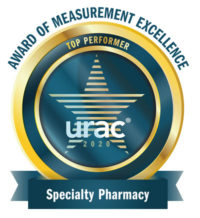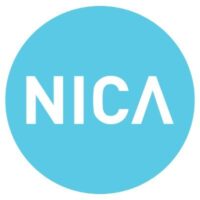
The number of people living with Alzheimer’s disease is growing, and the ripple effect is straining families, communities, and the healthcare system, yet talking about the disease on a personal level can be difficult.
November is Alzheimer’s Awareness Month, and we at TwelveStone Health Partners feel that we must talk about this difficult condition because it can happen in any family, and the challenges of living with or caring for someone with this disease are complex. And while there is no cure for Alzheimer’s, there are infusion treatments that can improve the quality of life for those living with the disease.
What is Alzheimer’s Disease?
Alzheimer’s is the most common cause of dementia, a general term for memory loss and other cognitive abilities severe enough to interfere with daily life. Alzheimer’s disease involves parts of the brain that control thought, memory, and language and accounts for 60-80% of dementia cases.
Although the most significant known risk factor is increasing age, and the majority of people with Alzheimer’s are 65 and older, Alzheimer’s is not a normal part of aging.
Alzheimer’s disease is considered to be younger-onset Alzheimer’s if it affects a person under 65. Younger-onset is also referred to as early-onset Alzheimer’s. People with younger-onset Alzheimer’s can be in the early, middle, or late stages of the disease.
Unfortunately, Alzheimer’s worsens over time. Because Alzheimer’s is a progressive disease, dementia symptoms gradually worsen over the years. In its early stages, memory loss is mild, but in late-stage Alzheimer’s, individuals lose the ability to converse and respond to their environment.
On average, a person with Alzheimer’s lives four to eight years after diagnosis but can live as long as 20 years, depending on other factors.
Alzheimer’s disease can also have a significant impact on those around someone with the disease as care progresses from emotional support to taking on increasing responsibility to providing care to support the dignity of life.
Who has Alzheimer’s Disease?
According to research by the Centers for Disease Control and Prevention, in 2020, as many as 5.8 million Americans were living with Alzheimer’s disease.The number of people living with the disease doubles every five years beyond age 65, and this number is projected to nearly triple to 14 million people by 2060.
What Causes Alzheimer’s Disease?
Scientists do not yet fully understand what causes Alzheimer’s disease, but it’s believed that there is likely not a single cause but rather several factors that can affect each person differently, including age and family history. Poor diet, excessive alcohol use, and smoking can also be contributing factors.
It’s important to understand that memory loss, such as forgetfulness, comes naturally with aging. Forgetting where you put the car key or not remembering a password does not signify the presence of Alzheimer’s. But there are signs and symptoms such as these.
- Memory loss that disrupts daily life: forgetting events, repeating yourself, or relying on more aids to help you remember (like sticky notes or reminders).
- Challenges in planning or solving problems: having trouble paying bills or cooking recipes you have used for years.
- Difficulty completing familiar tasks at home, work, or leisure: having problems with cooking, driving places, using a cell phone, or shopping.
- Confusion with time or place: having trouble understanding an event happening later or losing track of dates.
- Trouble understanding visual images and spatial relations: having more difficulty with balance or judging distance, tripping over things at home, or spilling or dropping things more often.
- New problems with words in speaking or writing: having trouble following or joining a conversation or struggling to find a word you are looking for (saying “that thing on your wrist that tells time instead of “watch”).
- Misplacing things and losing the ability to retrace steps: placing car keys in the washer or dryer or being unable to retrace steps to find something.
- Decreased or poor judgment: being a scam victim, not managing money well, paying less attention to hygiene, or having trouble caring for a pet.
- Withdrawal from work or social activities: not wanting to attend church or other activities as usual, not being able to follow football games or keep up with what’s happening.
- Changes in mood and personality: getting easily upset in everyday situations or being fearful or suspicious.
An early diagnosis – and access to the right services and support – can help people take control of their condition, plan for the future, and live well with their disease. Early diagnosis can help to eliminate the possibility of other potentially treatable conditions, and an early diagnosis can mean that medical treatments can begin sooner, prolonging a better quality of life.
Promising New Infusion Treatments
The U.S. Food and Drug Administration (FDA) has approved medications for Alzheimer’s. These fall into two categories: drugs that change disease progression in people living with Alzheimer’s, and drugs that temporarily ease some symptoms of Alzheimer’s disease.
Slowing Progression
As Alzheimer’s progresses, brain cells die, and connections among cells are lost, which causes cognitive (memory and thinking) and noncognitive (behavioral and psychological) symptoms to worsen. While these medications do not stop the damage Alzheimer’s causes to brain cells, they may help lessen or stabilize symptoms for a limited time. Treatments include:
Aducanumab (Aduhelm) is an anti-amyloid antibody intravenous (IV) infusion therapy delivered monthly. It has received accelerated approval from the FDA to treat early Alzheimer’s disease, including people living with mild cognitive impairment or mild dementia due to Alzheimer’s disease who have confirmation of elevated beta-amyloid in the brain.
Aducanumab was the first therapy to demonstrate that removing beta-amyloid from the brain reduces cognitive and functional decline in people living with early Alzheimer’s.
Lecanemab (Leqembi) is an anti-amyloid antibody intravenous (IV) infusion therapy delivered every two weeks. It has received traditional approval from the FDA to treat early Alzheimer’s disease, including people living with mild cognitive impairment or mild dementia due to Alzheimer’s disease who have confirmation of elevated beta-amyloid in the brain.
Cholinesterase Inhibitors
Cholinesterase inhibitors are prescribed to treat symptoms related to memory, thinking, language, judgment, and other thought processes. These medications prevent the breakdown of acetylcholine, a chemical messenger important for memory and learning. These drugs support communication between nerve cells. The cholinesterase inhibitors most commonly prescribed are:
- Donepezil (Aricept®): approved to treat all stages of Alzheimer’s disease.
- Rivastigmine (Exelon®): approved for mild-to-moderate Alzheimer’s as well as mild-to-moderate dementia associated with Parkinson’s disease.
- Galantamine (Razadyne®): approved for mild-to-moderate stages of Alzheimer’s disease.
Glutamate Regulators
Glutamate regulators are prescribed to improve memory, attention, reason, language, and the ability to perform simple tasks. Memantine (Namenda®), approved for moderate-to-severe Alzheimer’s disease, works by regulating the activity of glutamate, a different chemical messenger that helps the brain process information.
Cholinesterase Inhibitor + Glutamate Regulator
Donepezil and memantine (Namzaric®) has been approved for moderate-to-severe Alzheimer’s disease.
Relieving Symptoms
Alzheimer’s affects more than just memory and thinking. A person’s quality of life may be impacted by a variety of behavioral and psychological symptoms that accompany dementia, such as sleep disturbances, agitation, hallucinations, and delusions. Some medications focus on treating these noncognitive symptoms for a time, though it is important to try non-drug strategies to manage behaviors before adding medications.
Atypical antipsychotics are a group of antipsychotic drugs that target the serotonin and dopamine chemical pathways in the brain. These drugs are primarily used to treat schizophrenia and bipolar disorder and as add-on therapies for major depressive disorder.
Many atypical antipsychotic medications are used “off-label” to treat dementia-related behaviors, and there is currently only one atypical antipsychotic, Brexpiprazole (Rexulti®), that is FDA-approved to treat agitation associated with dementia due to Alzheimer’s. Rexulti is not approved for the treatment of people with dementia-related psychosis without agitation that may happen with dementia due to Alzheimer’s disease.
Suvorexant (Belsomra®) has been approved for the treatment of insomnia and has been shown in clinical trials to be effective for people living with mild to moderate Alzheimer’s disease.
TwelveStone Infusion Centers
At TwelveStone, we understand the challenges faced by those with Alzheimer’s disease and their caregivers. Whether we come to the home, or the patient comes to one of our infusion centers, you can be assured that the infusion will be delivered with compassion, respect, and an understanding of the symptoms of Alzheimer’s. As you notice splashes of teal and purple sprouting up this November, as both colors are associated with Alzheimer’s awareness, know that research is working to find a cure. Until then, TwelveStone will continue to serve Alzheimer’s patients and their families.















